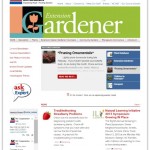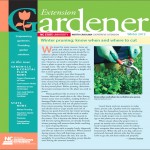Impact
go.ncsu.edu/readext?340252
en Español / em Português
El inglés es el idioma de control de esta página. En la medida en que haya algún conflicto entre la traducción al inglés y la traducción, el inglés prevalece.
Al hacer clic en el enlace de traducción se activa un servicio de traducción gratuito para convertir la página al español. Al igual que con cualquier traducción por Internet, la conversión no es sensible al contexto y puede que no traduzca el texto en su significado original. NC State Extension no garantiza la exactitud del texto traducido. Por favor, tenga en cuenta que algunas aplicaciones y/o servicios pueden no funcionar como se espera cuando se traducen.
Português
Inglês é o idioma de controle desta página. Na medida que haja algum conflito entre o texto original em Inglês e a tradução, o Inglês prevalece.
Ao clicar no link de tradução, um serviço gratuito de tradução será ativado para converter a página para o Português. Como em qualquer tradução pela internet, a conversão não é sensivel ao contexto e pode não ocorrer a tradução para o significado orginal. O serviço de Extensão da Carolina do Norte (NC State Extension) não garante a exatidão do texto traduzido. Por favor, observe que algumas funções ou serviços podem não funcionar como esperado após a tradução.
English
English is the controlling language of this page. To the extent there is any conflict between the English text and the translation, English controls.
Clicking on the translation link activates a free translation service to convert the page to Spanish. As with any Internet translation, the conversion is not context-sensitive and may not translate the text to its original meaning. NC State Extension does not guarantee the accuracy of the translated text. Please note that some applications and/or services may not function as expected when translated.
Collapse ▲Extension Gardener Success Story
Situation:
Sustainably designed and maintained home landscapes are less reliant on pesticides and fertilizers, conserve and protect water resources, provide habitat for wildlife, increase property values, and enhance community aesthetics. In addition, growing fruits and vegetables increases home gardeners’ access to fresh produce, eases pressure on family budgets, and promotes a healthy life style. Climate and soil related challenges can make it difficult for gardeners in North Carolina to successfully cultivate attractive, environmentally sustainable landscapes and bountiful food gardens.
Response:
To assist state residents with their gardening efforts, Extension horticulture agents from across North Carolina work together to produce four issues each of three regionally based editions of the Extension Gardener newsletter each year. Each issue delivers timely, research based information to NC residents on plant selection, sustainable landscape and turf management practices, and home food production.
Evaluation Method:
In the fall of 2014, Extension Gardener readers were invited to participate in an online survey. One hundred eighty seven of the newsletters approximately 4,000 readers participated in the survey.
Seventy seven percent of survey participants said they find Extension Gardener to be highly useful and timely, while 93 percent find the newsletter’s information highly reliable. Ninety eight percent of survey participants reported they have implemented at least one new gardening practice as a result of reading the newsletter, with the average reader changing three practices. When asked what value readers place on the benefits provided by Extension Gardener, answers ranged from $50 to $1,500, with an average value of $385 and combined value of $70,000 placed on the benefits received from this Extension resource.



